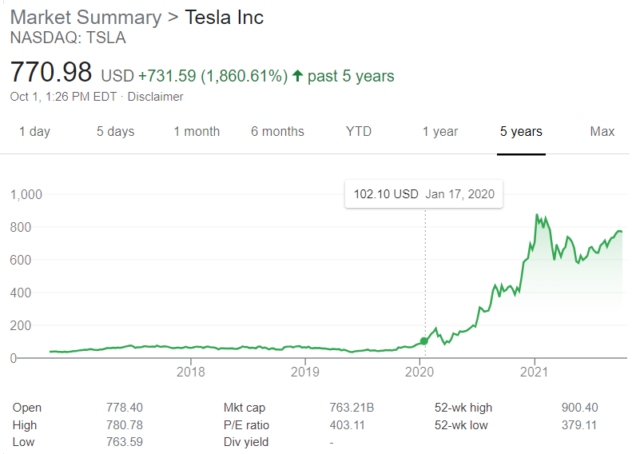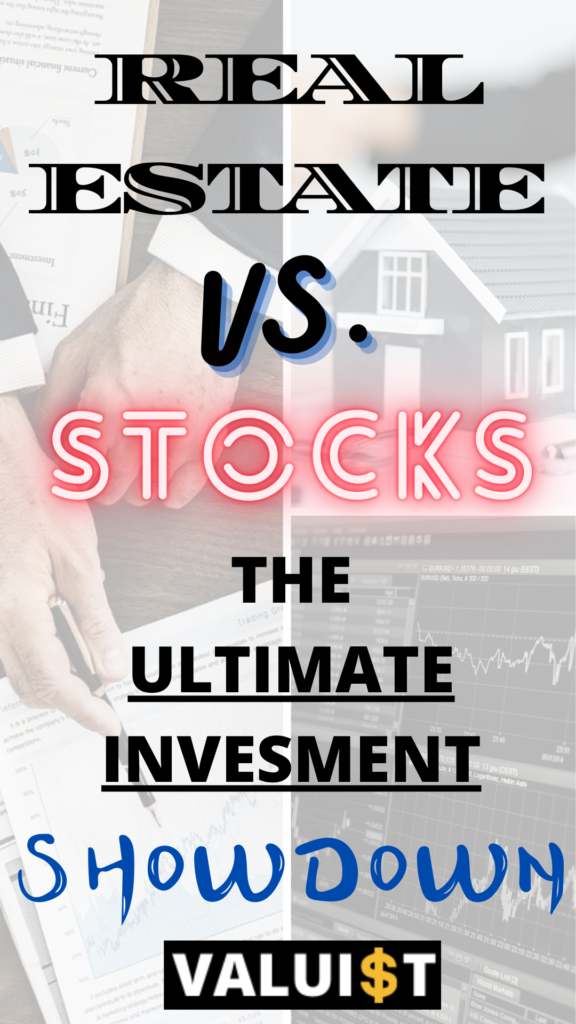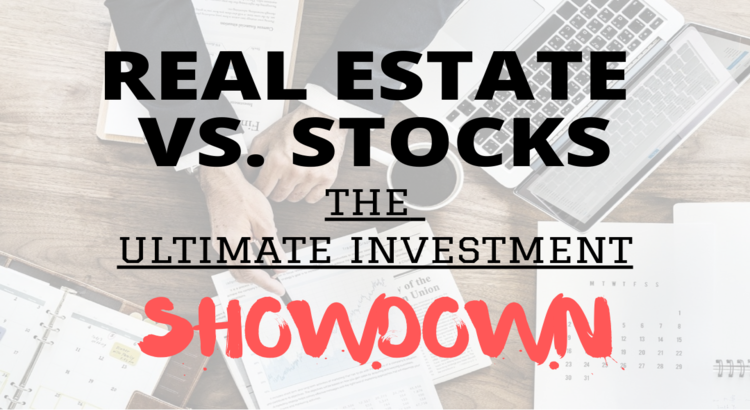Of the many ways you can invest, stocks and real estate have always been among the most profitable and most popular long-term investments. Ideally you should have exposure to both asset classes, or at least indirect access to real estate through REITs or crowd funding platforms. But which is the better investment? The answer, of course, depends on a number of personal factors but let’s take a look at the pros and cons of real estate investing versus stock investing to see which investment might be the best option for you.
Related: 5 Tax-Sheltered Investments That You Didn’t Know About
Real Estate Investments

The best things real estate investments:
- Real estate is “real”
When you buy real estate, and especially when you buy it outright, you are getting something tangible for your money. For many people that’s a very comforting thought. If the housing market crashes you can still rent out the property or at the very least, you can live in it.
- Successful real estate investments pay for themselves
The fact that tenants could cover the entire cost of your mortgage and property tax leaving you with a fully paid-off property, makes real estate hard to compete with in terms of profitability. Sure, you have to cover the cost of repairs and vacancies but when it’s done correctly, owning rental properties is one of the most stable, scalable and profitable businesses you can run.
- The real estate market is historically more stable than stocks
Though there have definitely been notable housing market crashes, real estate is generally much less volatile than the stock market. That means that there is a lot less fluctuation in real estate values. As part of the, “American Dream,” the federal government wants it to stay that way. Incidentally, through my work as a taxpayer representative I have found very few cases where the IRS is actually willing to liquidate a home to cover a large tax bill, that’s usually reserved as a last resort and after all other attempts, including wage garnishments and other assets sales have occurred.
Related: 5 Steps to Resolving Tax Debt (and When You Need Help)
In areas of rapid expansion, you can expect your investment to increase in value over time, usually significantly. If you really get lucky, you can make a lot of money quickly, without the typical risks you’re exposed to with stock investing. My wife and I built our first home for about $370K and two years later sold it tax-free for $555K. Not that a home should typically be considered an investment, but converting rental property to a residence is a viable strategy that can save you a lot of money on taxes. There’s no way we could have matched those returns with stocks without taking on a lot more risk. - You can’t have a break down and sell all your real estate over the span of a glass of whiskey
Because of the huge commitment of time, and the hoops you have to jump through to close a real estate deal, you feel much more invested in real estate than stocks. And you are; you can’t impulsively sell a property because you have to wait for your tenants to move out, you have to market it, show it to potential buyers and negotiate terms, all of which precludes you from making rash investment decisions.
The downsides of investing in real estate:
- Real estate is…tangible
Because real estate is real, there are taxes, utilities, repairs, upgrades, more repairs, marketing and sometimes even legal costs that you must cover. That can definitely narrow your profit margins and if you don’t charge enough in rent to cover these costs, these expenses can drain money over time.
- Real estate expenses can be hard to control
Another problem with real estate investments is that their costs can be hard to predict. You never really know when something catastrophic, like flooding, will occur which would significantly cut into your profits. When you add tenants to the mix, you can guarantee that you will be covering the cost of repairs, maintenance and eventual upgrades like carpet replacement and new appliances.
- If the market shifts and you have a mortgage, you can end up owing more than the property is worth
If the housing market does crash you could end up owing more to the bank than you would earn on the sale of the property. If you don’t, or can’t rent out the place and it’s not feasible for you to move in, you may have a very expensive problem on your hands. With stocks at least you can hold on to them at little expense until their value improves.
Related: If your investment plan is solid, it’s very hard to lose money on stock investments. - You can’t sell real estate nearly as fast as you can sell stocks (i.e. over the span of a glass of whiskey)
The benefit you gain from not being able to impulsively sell your real estate investment may also be a downside. Because real estate costs a lot more money to sell and take a lot longer, it’s harder to lock in profits or mitigate losses.
Stock Investing

The best things about stock investments
- Stocks are intangible
Today when you own stocks you don’t really get anything that represents your investment besides some numbers on a screen. You don’t even get the piece of paper that a stock certificate used to be printed on. However, you do legally own a share of a corporation and the only way you can lose it is if you decide to sell it. For me, that makes stock investing attractive. All you have to do is buy shares at a low cost, wait (in accordance with your investing horizon) and sell the shares when they are worth more. There are no upkeep costs besides perhaps the taxes on dividends that you might have to attend to within a taxable account.
- You can start investing with much less initial capital
Unlike with a direct investment in real estate, you can start investing in stocks with almost any amount of initial capital. I started my investing journey with $3,000 that I had saved from working while living with my parents and I poured it into VASGX after reading an article at obliviousinvestor.com. That was a great start for me because of how well diversified that single fund is, and in fact, VASGX is still an excellent option for almost anyone investing with IRAs.
However I later decided that I wanted to be more aggressive and a 20% allocation to bonds might limit my total returns over time. I eventually landed on a portfolio primarily consisting of VTSAX and supplemented by small cap value and some exposure to emerging markets. I admit that though my decision to deviate from the total stock market seems defensible, it was essentially an emotional decision. I can’t be sure that my inclusion of these funds will beat the return of the total US stock market over time but I am willing to take that risk. What’s important is that you are comfortable with your investment portfolio (and that you are diversified). - Stock investing can be extremely inexpensive, especially in an IRA
When investing in an IRA, buying and selling is typically free, at least if you’re using the funds offered by your brokerage. Some mutual funds have minimum initial investment amounts but usually nothing like the start-up costs of investing in real estate. - Popular stocks and mutual funds are highly liquid
The worst things about stock investments
- It’s too easy to make emotional decisions with stock investments
The number one problem with stocks is how investors react to market swings. Because it’s so easy to buy and sell public stocks, undisciplined investors are able to make impulsive decisions that could decimate their long term returns. - Stock investing can complicate your taxes
If you’re a long-term investor and choose funds that don’t pay out many dividends, you can reduce the tax burden of having stocks in a taxable account. But if you’re doing a lot of trading, or pick stocks that do kick back a lot of dividends, you will have a difficult and costly return to prepare each year. - You could lose everything a lot faster
Though it’s wise to diversify, it can be much more profitable not to. Looking at how Tesla’s stock has skyrocketed over the last year I wish I could go back in time and buy a bunch of shares in 2020. But hindsight is “20/20,” and buying individual stock can be risky. With mutual funds, hundreds or thousands of companies would have to fail for you to go bust, but with an individual stock investment only one company has to.
Related: 15 Factors to Consider Before Picking Stocks, ETFs and Mutual Funds

Final Considerations
As I said initially, it’s definitely best to have exposure to both asset classes in some form, but if I had to choose one, I would go with stocks (mutual funds). To me, there’s nothing better than an investment you can buy quickly, pay little-to-nothing to hold and sell at the exact moment you choose. The fact that you can buy confidently during market crashes, bide your time and reap the rewards, usually within a few years, is also highly attractive to me. That said, if I were going to start a business it would probably be with rental real estate. There’s nothing that I can think of that has such great risk-adjusted returns and is as scalable in such a short amount of time, as an investment in real estate.


